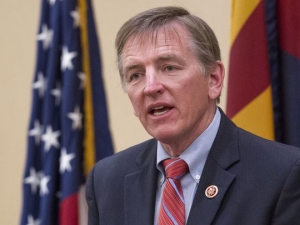Deficit Hawks Screeching In The Background
The deficit harpies are warming up in the background. [1] Inflation is just around the corner, they shriek, by which they mean Democrats might take over government. There must be a handbook in which their arguments are laid out probably in red ink. They claim that whatever the Fed and the Treasury do to help anyone has to be paid for sooner rather than later by increasing taxes. Those taxes will fall heavily on the capitalists, which (or who) will destroy economic growth. They claim the government is sucking up all the investment capital, which chokes growth. They say the vast amount of debt will hurt the standing of the US in international finance. It’s predictable and this time it’s silly.
1. The numbers. Congress has authorized $2.2 trillion in spending to deal with the economic impact of the Covid-19 crisis. That’s on top of other spending in a budget originally proposing a deficit of $!.1 trillion. With other spending on Covid-19 issues and reduced tax revenue, the current estimate for fiscal 2020 is about $3.8 trillion. We can reasonably assume another $1 trillion will be needed for states and municipalities, treatments and vaccines, and support for hospitals.
2. Funding Covid-19 expenditures. The US deficit is funded by the sale of US Treasury obligations. Sales are handled by a group called Primary Dealers, who act as market makers in Treasury securities. [3] In the past most of the debt is has been purchased by financial institutions for their own accounts or for the accounts of investors, or by the central banks of other countries. In the current crisis, the Fed has promised to buy all the Treasury debt. Here’s a good explainer. [2]
To get a picture of the situation, in the two months ended 30 April 2020, the national debt held by the public increased by $1.645 trillion. In the comparable period the Fed’s holdings of Treasuries increased by $1.448 trillion. The projected deficit during that period was about $183 billion, so we should estimate the increase in the total debt includes that amount. If we deduct that, we get an estimate of the amount of debt issued on account of the Covid-19 crisis of $1.462 trillion, meaning that the Fed purchased substantially all of the Covid-19 debt.
3. So what? The fear-mongering is based on two speculations: that the federal debt will have to be paid, or that interest rates will somehow increase, and either will have to be paid out of current tax revenues. In either case, we will have to increase taxes. [5] Another theory is that the Fed will have to sell off the Treasuries it bought into the private markets which will be bad for some reason.
The good news is that the Fed can just return the Treasuries to the Treasury in the form of a dividend, or a remittance in Fed parlance, and the debt drops by a like amount. Or the Treasury could pay off the securities and the Fed could remit that payment to the Treasury. If the Fed wants to hold the securities to help it control interest rates or for other reasons, it can just remit the interest payments to the Treasury.
Why would anyone think otherwise? That is the power of neoliberal ideology, which has taken root in the minds of practically every media personality and Twitter economist. There was a moment after the Great Crash when similar questions were raised, but no one paid any attention to see what happened after that, which was a big fat nothing.
It’s possible that the Treasuries aren’t the problem, it’s all the trillions of new dollars flooding the world that will cause inflation. This might actually happen in different circumstances, so it requires a bit of explanation.
1. Demand has fallen dramatically as we cope with lockdown, and in turn, income to business and working people have collapsed. This new money is largely going to people and businesses who need it to replace part of the income they would usually derive from their normal business activities or from employment. It won’t create new demand as it might have six months ago. It just replaces lost income, enabling people and businesses to avoid bankruptcy. It’s true that there are inflationary pressures on certain things, such as medical supplies and equipment. That’s just normal capitalist price-gouging, and unlike similar cases, say, lumber after hurricanes, won’t be prosecuted.
2. Most US business sectors are oligopolies, meaning that three or four companies control 80% or more of revenues. This is certainly true in the medical sector, including the drug business. Thus, salvaged demand paid for by the new money will flow to capitalists. It may be that some will be needed to expand production in some areas and reduce production in others. The rest will go to capitalists, in the same way the Trump tax cuts did, in the form of dividends and stock buy-backs. It is highly unlikely to have a serious inflationary effect.
3. If, however, there were a problem, there is a solution. Congress can increase taxes. The good news is that it can do so in a way that won’t actually impact working people. Congress can hike taxes on the capitalists and on capital.
a. This makes sense in an oligopolistic economy, which is by definition not competitive. When capital flows into oligopolistic businesses, some of the money goes into some new productive use. The rest goes to capitalists. Taxing oligopolistic profits away means that there won’t be inflation in the things only capitalists buy, giant yachts, private jets, politicians, and political favors, for example. Taxing them is doing a service in tamping inflation that only affects them.
b. Republicans will choke on tax hikes. But if inflation driven by all the new money is a problem, it’s one they caused. They threw away any claim to their version of fiscal responsibility when they cut taxes on the rich in the middle of an expansion. If inflation arises, they can’t expect the Fed to fix it for them, because they wouldn’t be able to survive the depression that would cause, just as Carter couldn’t survive the Volcker recession.
c. If this sounds like a layman’s take on Modern Money Theory, well, it is. I hope I got it right.
Update: Shortly after I posted this I saw this headline in the Washington Post: Top White House advisers, unlike their boss, increasingly worry stimulus spending is costing too much.
======
[1] Here are some examples. This is a fairly restrained version. Here’s one from the Federalisr; I read it so you don’t have to, it’s ridiculously wrong on everything, including the conclusion:
In summary, the newly proposed bailout and stimulus packages smack of big government welfarism and crony capitalism. These are the sort of policies that will move the needle toward socialism, impoverishing us and stripping the productive engines of our economy.
I think the writer is worried about our precious national bodily fluids.
Here’s one from a columnist for the Arizona Republic, saying that this is bad, bad, even if the guy has been expecting disaster his entire career. It’s easy to see how this guy scared himself with numbers.
Here’s one explaining that the Fed buying municipal securities from towns and states shifts tax burdens to national taxpayers. That’s aimed specifically at my home state, Illinois, and I hope every shithead who makes this argument loses 75% of their deferred income. Here’s one from the occasionally sober SeekingAlpha.
One more from USA Today, complete with towering red bar graphs.
[2] After the Great Crash, the Fed made a similar promise. Buying and selling Treasuries is one way the Fed controls interest rates. And it’s worth noting that Treasuries are often used by financial institutions in various short-term transactions, such as repurchase agreements, and as collateral for short-term loans, rather than as investments or savings.
[3] Here’s the Wikipedia entry on Primary Dealers, which lists the current dealers.
[4] The Fed’s weekly balance sheets are here. Debt figures from the Treasury are here.
[5] This idea never surfaced from the Republican wing of deficit hawkers when the Republicans insisted on tax cuts in the middle of an economic expansion. And for Grover Norquist, I note that a government small enough to drown in a bathtub has proven to be a nightmare in responding to Covid-19. Norquist and his groupies drowned the federal government’s administrative ability to cope with the pandemic.






